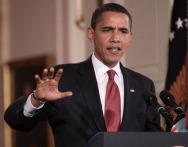
In American culture, a man must be attractive, have sexual prowess or a large penis, strength and substantial income (comes from the paradigm that men are the “providers”) to have “value.” Should a man fail to meet any of these expectations, he feels less than or is criticized. We won’t talk about this candidly because men are supposed be invincible and can’t possibly have a shaky self-concept, which brings me to emotions. Again, men are expected to be pillars of constant strength, therefore the only emotion socially acceptable for them to express is anger. By the way, anger IS an emotion. If a woman bawls her eyes out, she’s weak and “emotional,” but if a man punches a hole in the wall, he’s just angry. What a contradictory double standard. Anyhow, being limited to anger leads to covert, sometimes passive-aggressive expression, like withdrawal or avoidance. Being controlling, possessive, jealous or manipulative, cheating to meet needs or having resentment from a bruised ego are all examples of emotionally-motivated behavior. Thoughts and feelings aren’t sexist and don’t discriminate.





 RSS Feed
RSS Feed